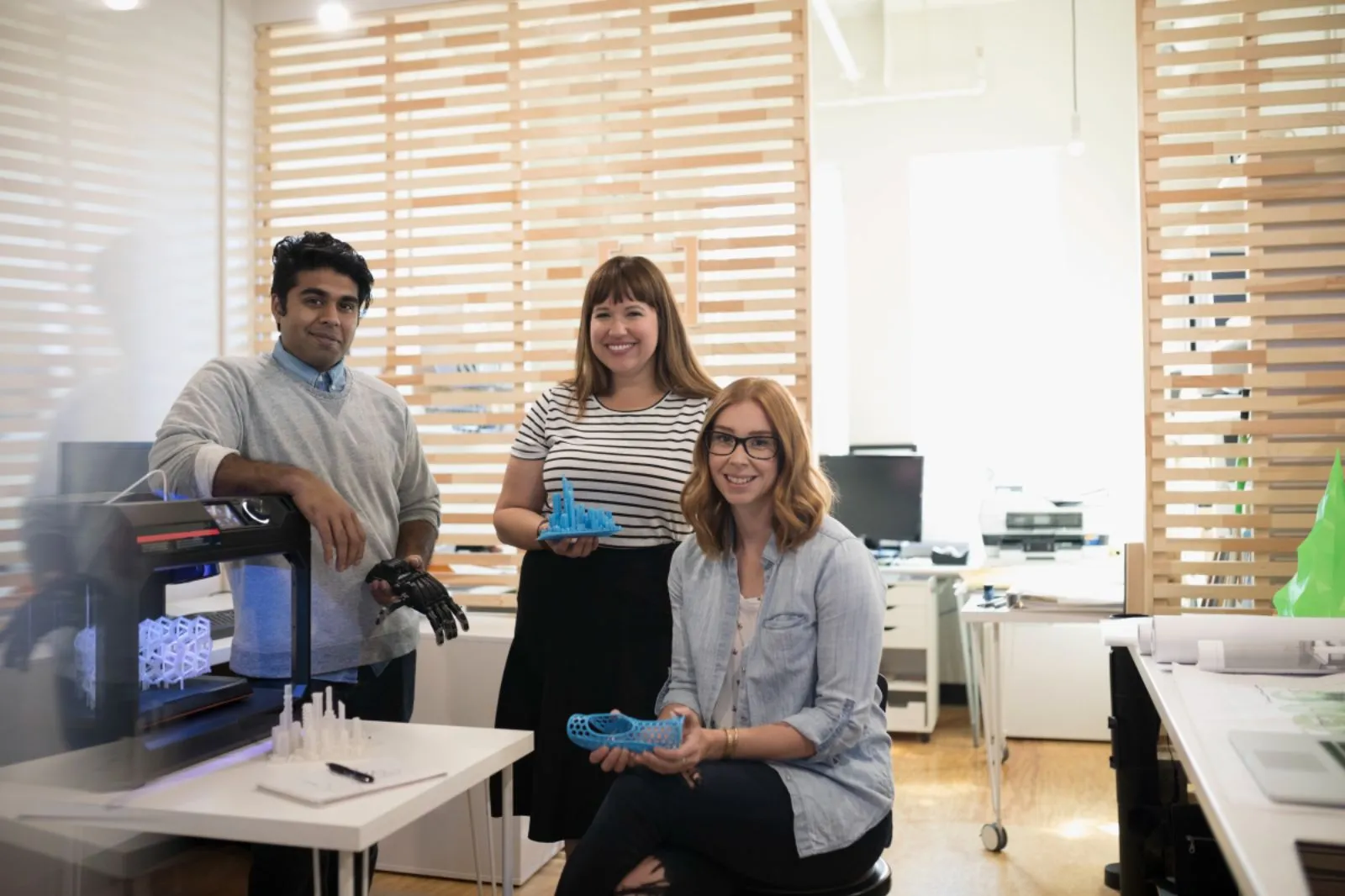Program Details
About the program
Mitacs Elevate helps partner organizations build their business with support from top-ranked, highly trained research talent. Participating fellows work closely with partner organizations to understand their business needs and apply research principles to address these needs.
Participating partner organizations build crucial relationships, oversee development, and access academic institution resources that may otherwise be unavailable.
Elevate partner organizations can also:
- Assess potential research managers with minimal impact on existing budgets
- Develop strategic networks with researchers, professors, and academic institutions
- Leverage their research budget
The Elevate program offers:
- An award valued at $60,000 per year with a minimum stipend of $55,000
- Partner organization contributes $30,000 per year
2. An exclusive professional development curriculum
3. Proposal assistance, including application feedback, from a Mitacs Advisor
4. Certificate of completion after receipt of their exit survey submission

Fellows can access the Elevate curriculum on our learning management system, EDGE.
Funding

Successful applicants receive a Mitacs Elevate award of $60,000 per year, for a total award of $120,000 for two-year projects, as well as the mandatory research management training curriculum. A minimum stipend/salary of $55,000 per year is allocated to the fellow, and up to $5,000 is allocated to research costs. Mitacs follows tri-council guidelines with respect to the use of funds towards eligible research costs. Awards are typically forwarded annually as a lump sum of $60,000 to the supervising faculty member, to be held as a research grant at their home academic institution, pending Mitacs’s receipt of the following:
- the $30,000 annual partner contribution
- any necessary documentation such as a Declaration of Conflict of Interest and/or other documentation as appropriate
Please note: Costs can only be incurred after research approval of the proposal AND the receipt of the partner funds at Mitacs as per Mitacs Policy.
Eligibility
Partner organizations are eligible if:
- They are incorporated in Canada
- They are end users of the research
- They have an office or site where the fellow undertakes at least 50% of the fellowship interacting with the partner
- They are for-profit corporations and crown corporations receiving no more than 50% of their revenues from government sources
- They are eligible not-for-profit (NFP) corporations such as industry associations, charitable organizations, and economic development organizations.
- They are a hospital or municipality in Canada.
NOTE:
Please contact a Mitacs Advisor to discuss the eligibility of an NFP organization before submission of the completed application package
Ineligible organizations include:
- Government departments, agencies or ministries
- Academic institutions
- Indigenous governments
- Foreign companies
Questions about Mitacs Elevate eligibility? Contact a Mitacs Advisor.
How to Apply
Elevate proposals are now accepted all year round.
Before you apply
- Check the eligibility of the postdoctoral fellow, academic supervisor and partner organization
a. If you are collaborating with a not-for-profit, hospital, or municipality, you must seek partner and project eligibility approval before proceeding by connecting with a Mitacs advisor in your region - If you have a potential conflict of interest (COI):
a. If you are uncertain whether you have a COI, please consult the Mitacs Conflict of Interest Policy or contact elevate@mitacs.ca
b. Postdoctoral fellow COI: Submit the completed Intern eligibility and COI Declaration to your Mitacs Advisor
c. Academic supervisor COI: Bring your COI to your academic institution’s attention and include in your final application the documents below:
- Details on academic supervisor’s involvement with non-academic partner organization
- Evidence that the academic supervisor’s academic institution is aware of the conflict
- A description of the academic institution’s mitigation measures
How to apply
- Connect with a Mitacs Advisor
a. Get your Elevate application started here
b. Refer to guidelines under Elevate downloads on how to write your proposal. IMPORTANT: When filling in the proposal, please make sure to follow the format provided. Changing or modifying the format provided may result in your application becoming ineligible.
2. Upload the following documents to your Elevate application:
a. For postdoctoral fellow, please upload the following to your profile:
- Postdoctoral fellow’s CV
- One (1) recommendation letter* from a former supervisor or person familiar with the fellow’s research expertise
- Any supplementary documents as applicable
b. For academic supervisor, please upload the following to your profile:
- Proposed academic supervisor’s CV
- One (1) recommendation letter* from the proposed academic supervisor
- Any supplementary documents as applicable
c. For partner organization, please upload the following to your profile:
- One (1) recommendation letter* from an eligible partner organization including financial contribution in dollar amount
- Any supplementary documents as applicable
*All recommendation letters must include letterhead and signature. Please refer to Recommendation Letter Guidelines under this section.
3. Submit your Elevate application
After you apply
You will receive an email confirmation that your application has been received.
For more information on the adjudication process, refer to the Adjudication section in Program Administration.
If accepted, the project can only start after research approval of the proposal AND the receipt of the partner organization funds at Mitacs as per Mitacs Policy.
Recommendation letter guidelines
From partner organizations
A current or potential industrial supervisor who is providing a letter of recommendation on behalf of an applicant should include the following information:
- Please indicate your willingness to fund the applicant for the duration of the fellowship with the dollar amount. If you are unable to support the fellow for the entire two years, please provide an explanation.
- To what extent have you interacted with the fellow and/or the proposed academic supervisor in the past?
- Based on the proposed research project and on the previous interactions you had with the fellow, how do you foresee that the fellow’s work might benefit your company?
- If you are not already collaborating with the fellow, how do you envision your role in an eventual partnership? For example, you may describe the expected level of implication of your enterprise in terms of project design, in-kind contributions and access to facilities;
- The Elevate program provides an exclusive professional development curriculum to fellows. Please comment whether you anticipate this training to be beneficial to the success of the fellow and your collaborative research project. If the fellow will have additional training opportunities through your organization, please provide details on these.
- If applicable, please describe the location/site that the applicant will be working at, and how much time you expect the applicant to work directly with your company
- If applicable, please describe the location/site that the fellow will be working at, and how much time you expect the fellow to work directly with your company
Elevate downloads
All necessary Elevate and Mitacs forms, templates, terms, policies, etc., may be downloaded via the following zip files:
Program Administration
Successful applicants receive a Mitacs Elevate award of $60,000 per year, as well as the mandatory professional development curriculum ($7,500 non-cash value); a minimum stipend / salary of $55,000 per year is allocated to the fellow and up to $5,000 is allocated to research costs. Mitacs follows tri-council guidelines with respect to the use of funds (refer to Use of Funds under Funding) towards eligible research costs. Awards are typically forwarded annually as a lump sum of $60,000 to the supervising faculty member, to be held as a research grant at their home academic institution, following Mitacs receipt of the following:
- the $30,000 annual partner contribution
- any necessary documentation such as a Declaration of Conflict of Interest and/or other documentation as appropriate
Please note: Costs can only be incurred after research approval of the proposal AND the receipt of the partner funds at Mitacs as per Mitacs Policy.
All parties involved with the Mitacs Elevate program are bound by the intellectual property terms of the university where the fellow is appointed. Please see the links below to the intellectual property terms for the following universities:
- Brock University
- Concordia University
- McGill University
- Simon Fraser University
- University of Alberta
- University of Calgary
- University of Ottawa
- University of Victoria
For all other institutions, the Mitacs Elevate program’s policy is to take no position regarding the intellectual property created by the projects and fellowships that are funded.
Intellectual property is left to be shared between the university, its researchers, and the industry partner, according to the intellectual property rules of the host university, unless a separate agreement is negotiated between the university, its researchers, and the industry partner. Mitacs strongly recommends that any discussions pertaining to intellectual property and confidentiality – where relevant – be resolved prior to submitting the Mitacs Elevate proposal.
All Mitacs Elevate fellowship proposals undergo a two-stage review process:
Stage 1: an administrative review to confirm program eligibility, followed by
Stage 2: an external review based on peer assessment of the research project proposals.
Peer assessment criteria are grouped into two (2) broad categories: the technical merit of the proposed research project; and the excellence of the proposed fellow. For these categories, Mitacs seeks arm’s length expert reviewers to answer the following questions:
A. Technical merit of the proposed project
- Does the project significantly contribute to the advancement of knowledge or the development of new applications, and is there an appreciable element of novelty?
- Are the objectives achievable, given the current state of the art and the expertise of the project team?
- Are the methods and techniques appropriate for the objectives?
- Is the proposed project at an appropriate level for a postdoctoral fellow
B. Excellence of the proposed fellow
- Relative to other researchers at the same career stage, how would you characterize the achievements of the proposed fellow (e.g. publication record, patents, awards and scholarships, mentoring, accomplishments in teaching, related industry or entrepreneurial activities, etc.)?
- The Elevate program offers training opportunities to develop leadership, communication and business skills. Does the candidate demonstrate commitment to this professional development?
Responsibilities
Mitacs Elevate Terms and Conditions (see Downloads under How To Apply) outline participants’ responsibilities in further detail — each participant is expected to understand and adhere to the Terms and Conditions of the program.



